UK election: ‘The hard work is only just beginning’
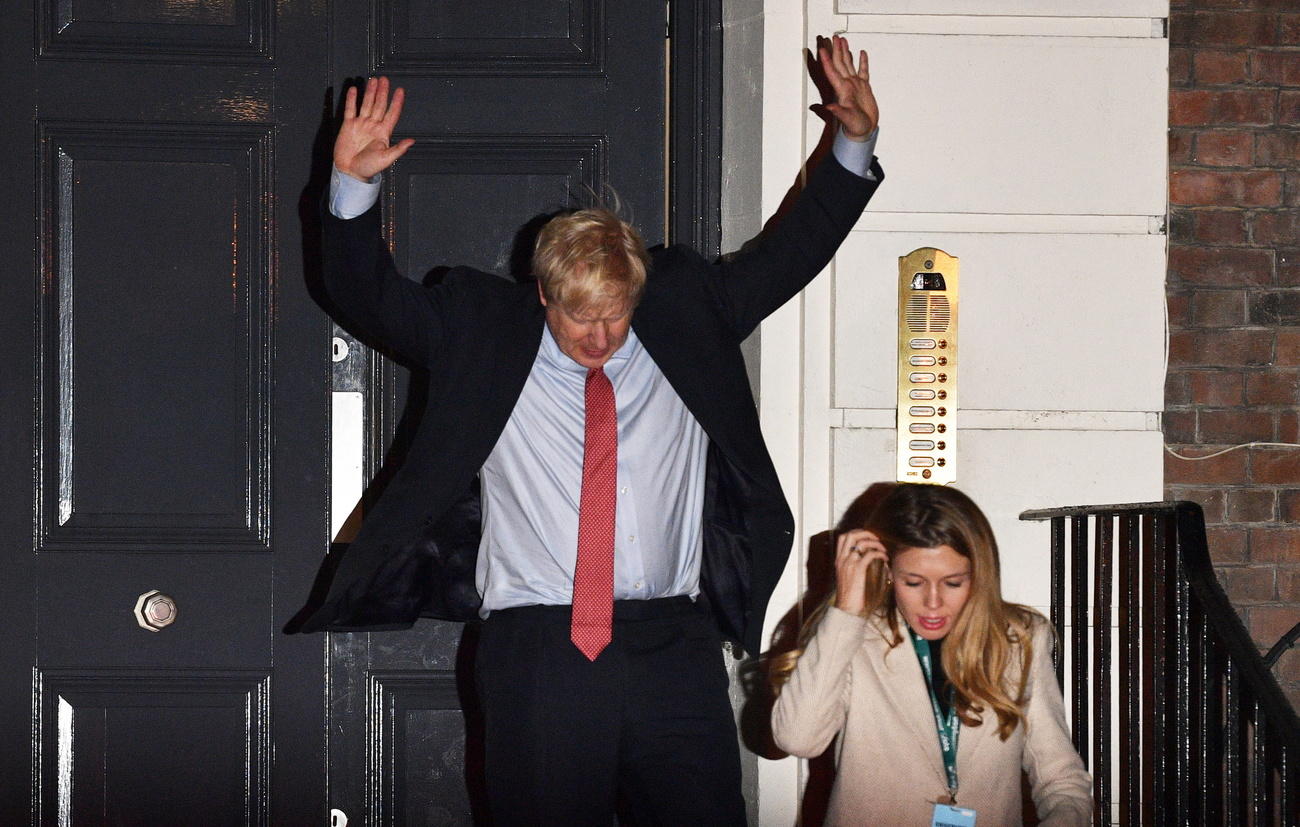
“Britons face a rude awakening”, “Brexit drama simply goes to the next round” – Swiss newspapers agree that while the Conservative Party’s election victory was impressive, a reality check awaits voters hoping that the messy divorce is finally over.
“Brexit Boris has done it and secured an absolute majority in parliament. He can finally ‘get Brexit done’ and lead the country out of the EU on January 31,” said tabloid BlickExternal link.
Prime Minister Boris Johnson’s Conservative Party won a resounding election victory on Thursday night – claiming a string of Leave-supporting seats from Labour in the opposition party’s heartlands of Wales and northern England – that markets believe makes an orderly British exit from the European Union all but certain.
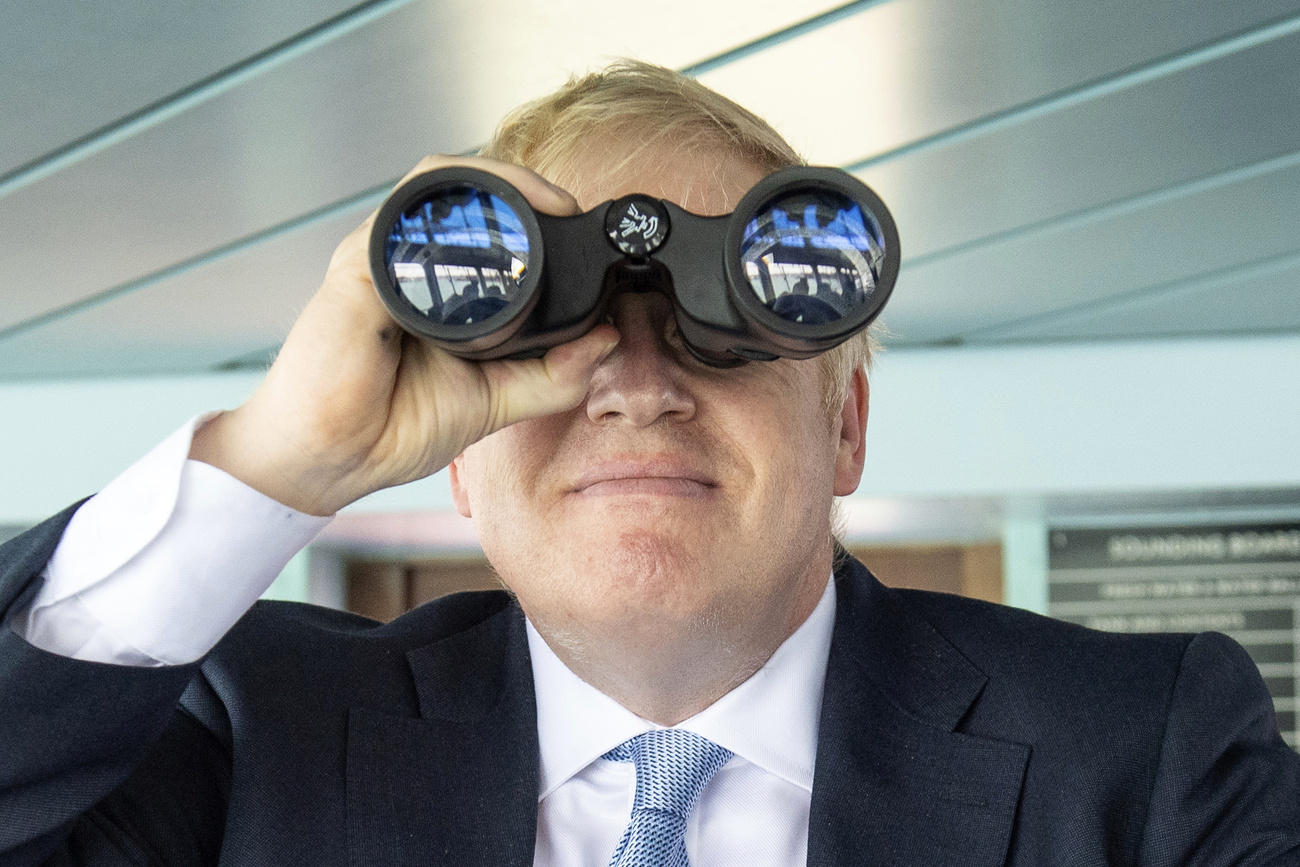
More
Boris Johnson: entertaining raconteur or dangerous liar?
“But Britons face a rude awakening,” Blick warned. Why? “Johnson’s Brexit deal isn’t enough! Leaving the EU means the hard work is only just beginning.”
Johnson now faces the task of negotiating a trade agreement with the EU, possibly in just 11 months (see box), while also negotiating another trade deal with US President Donald Trump.
“The problem is that Johnson has set himself irreconcilable goals,” Blick said. “On the one hand he wants duty- and tax-free trade with the European Union; on the other hand he doesn’t think anything of being bound to EU rules, for example when it comes to workers’ rights, environmental standards and state support for the economy.”
The paper asked: “Why should Brussels give a trading partner on its doorstep extensive access to its market if [the trading partner] does not guarantee that it will play by the rules of fair competition?”
‘Remarkable achievement’
“Boris Johnson triumphs, but the Brexit drama simply goes to the next round,” was the headlineExternal link in the Neue Zürcher Zeitung (NZZ).
“His mantra-like slogan ‘Get Brexit done’ obviously did its job. The big question now is how Johnson deals with this voter mandate.”
The NZZ said that up to now Johnson’s only goal was to win the election by any means necessary and to worry about the consequences later. “That will now have to change,” it said. “Because Brexit, contrary to the prime minister’s claims, is very far from being ‘oven ready’.”
If there’s no agreement by the end of next year, “the risk of crashing out in a ‘no deal’ scenario is back on the cards. In other words, we’re back to square one”.
Scottish ‘tidal wave’
Le TempsExternal link in Lausanne acknowledged that while Johnson’s ‘crushing victory’ clarified the British political landscape, it didn’t lessen the many difficulties facing the prime minister.
“The first one will be in Scotland, where another tidal wave saw the pro-independence Scottish National Party (SNP) win 52 seats out of 59. The SNP’s triumph means pressure will quickly increase to call for a second referendum on Scotland. Boris Johnson has always said he didn’t want [another referendum], but how long can he resist the logic of the ballot box?” Le Temps wondered. The SNP ended up winning 48 seats.
The paper also warned of a return to square one if a free-trade agreement – “which normally takes years to negotiate” – couldn’t be reached by the end of 2020. “With one major exception: despite a decade of austerity, despite the chaos of the past three years, the Conservatives’ grip on power is firmer than ever.”
Brexit: What happens next?
With early vote-counting indicating a handsome Conservative majority, Prime Minister Boris Johnson should be able to finally secure parliamentary approval for the withdrawal agreement he struck with the European Union in October so that Brexit happens on January 31.
Britain will then go into a status-quo transition period until the end of 2020, which Johnson has claimed leaves ample time to negotiate a new relationship with the EU, including on trade.
But EU diplomats and officials say various issues – from fishing quotas to the sharing of security and data – will be sticking points which, if not ironed out, could yet take Britain to the cliff edge of a no-deal exit one year from now.
The EU hopes to start trade talks with Britain by March, leaving just ten months to strike a deal and get it approved by London and the EU, including member states’ parliaments.
Trade agreements with the EU typically take years to complete, and few in Brussels believe the transition period will be long enough to seal a deal with Britain.
The transition period can be prolonged by one or two years, but London must request an extension by the end of June.
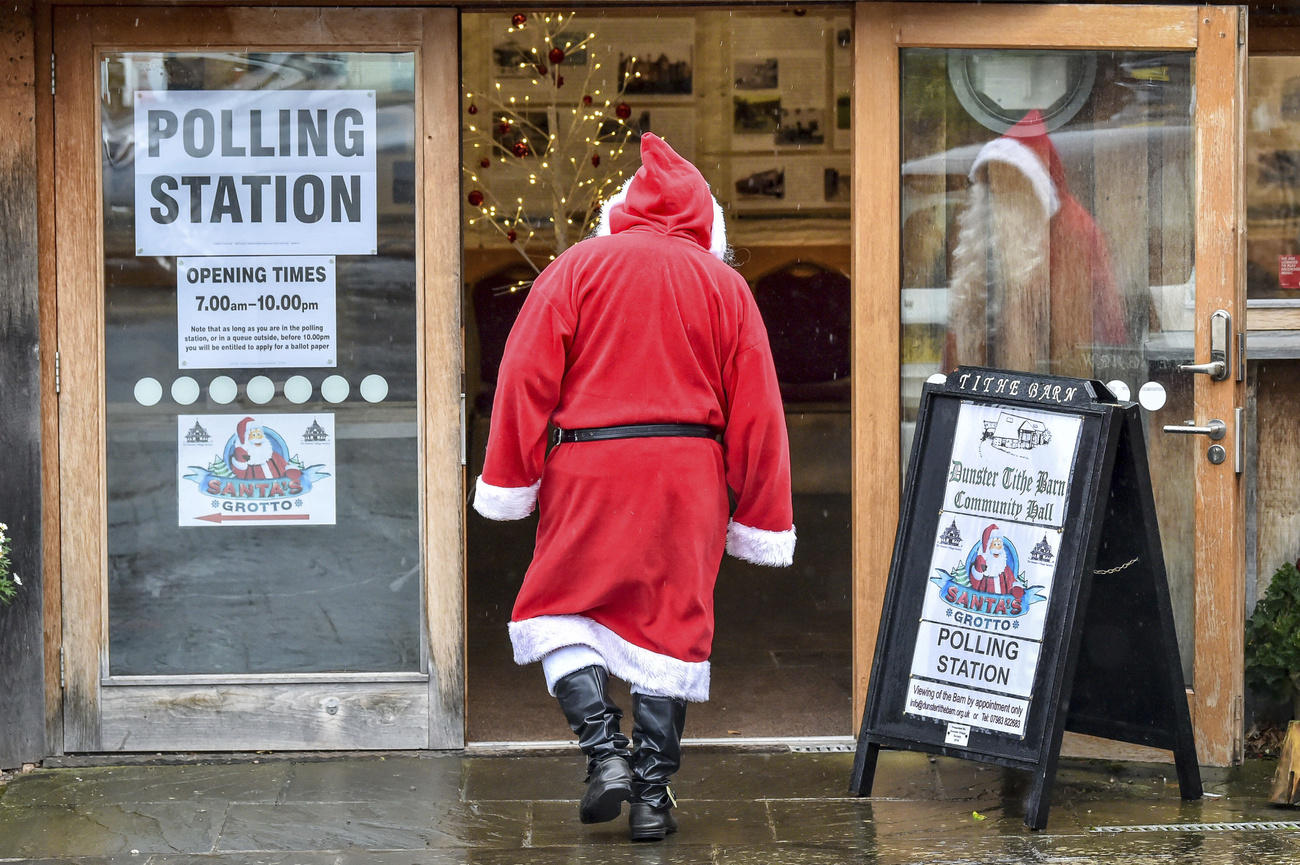
More
UK election: ‘A goal in extra time is not a good way to do politics’

In compliance with the JTI standards
More: SWI swissinfo.ch certified by the Journalism Trust Initiative









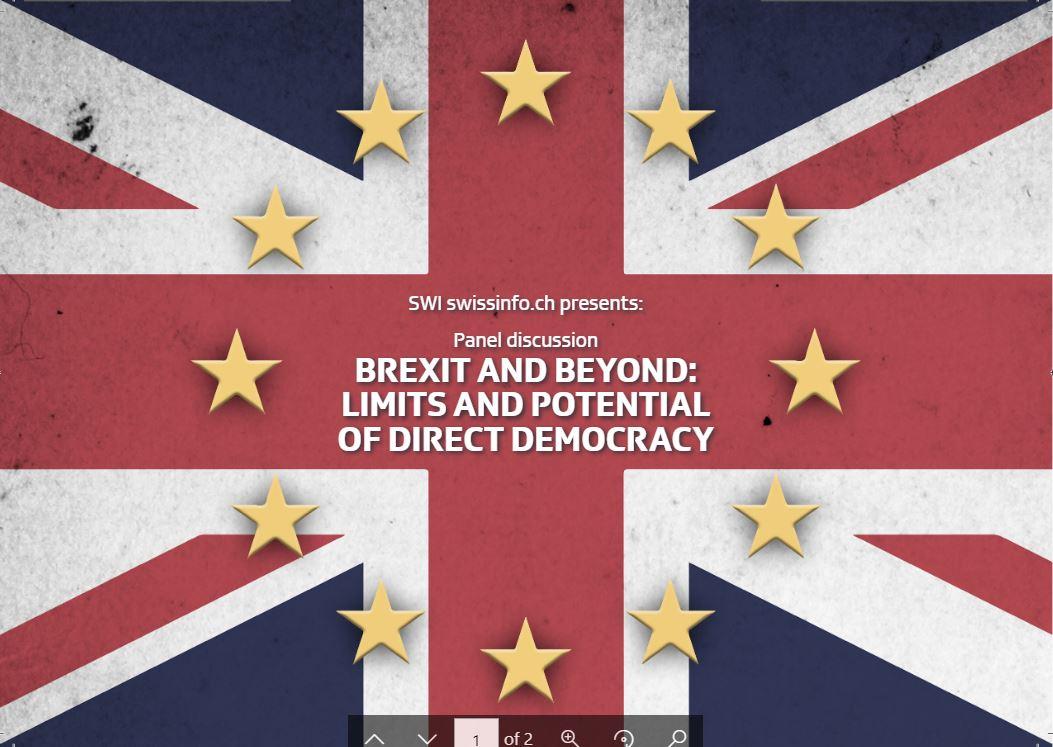
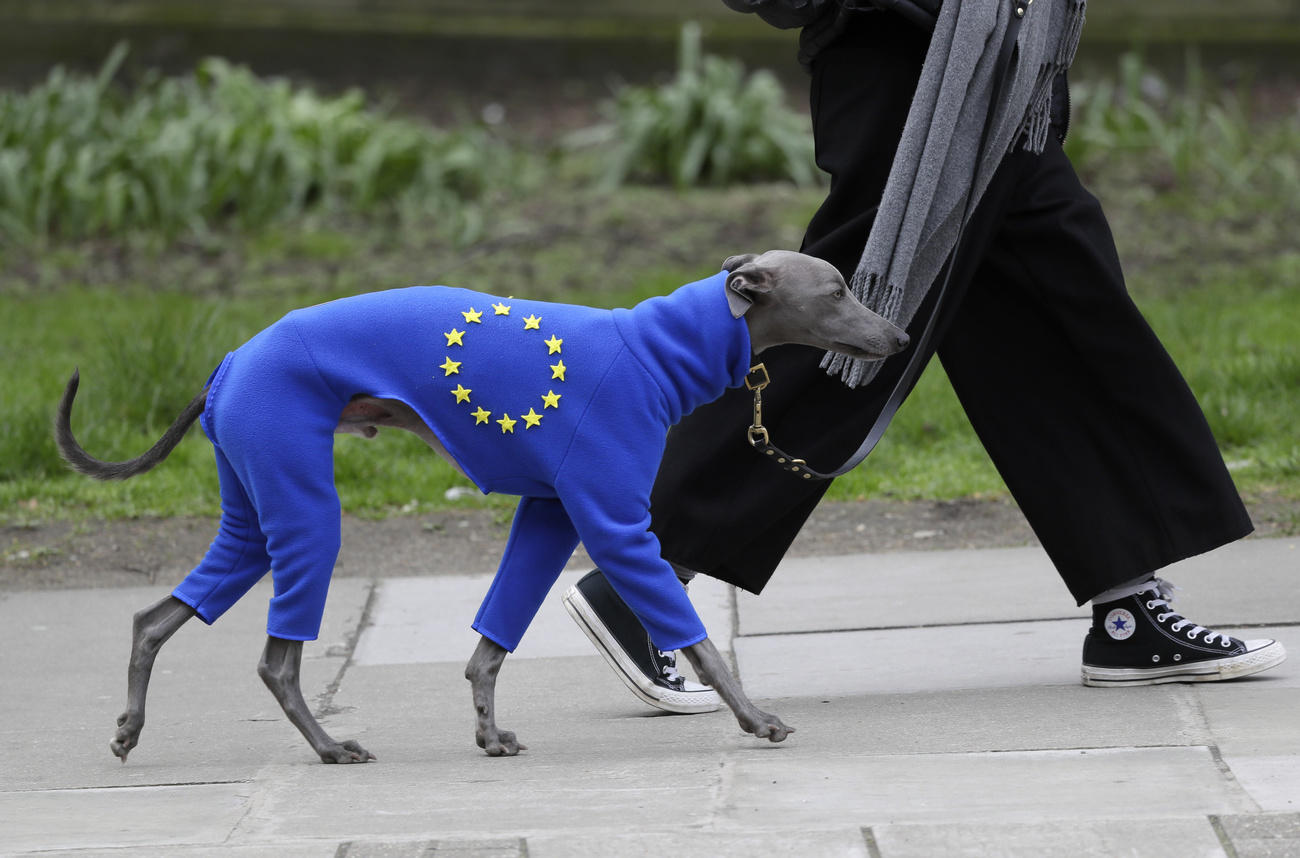


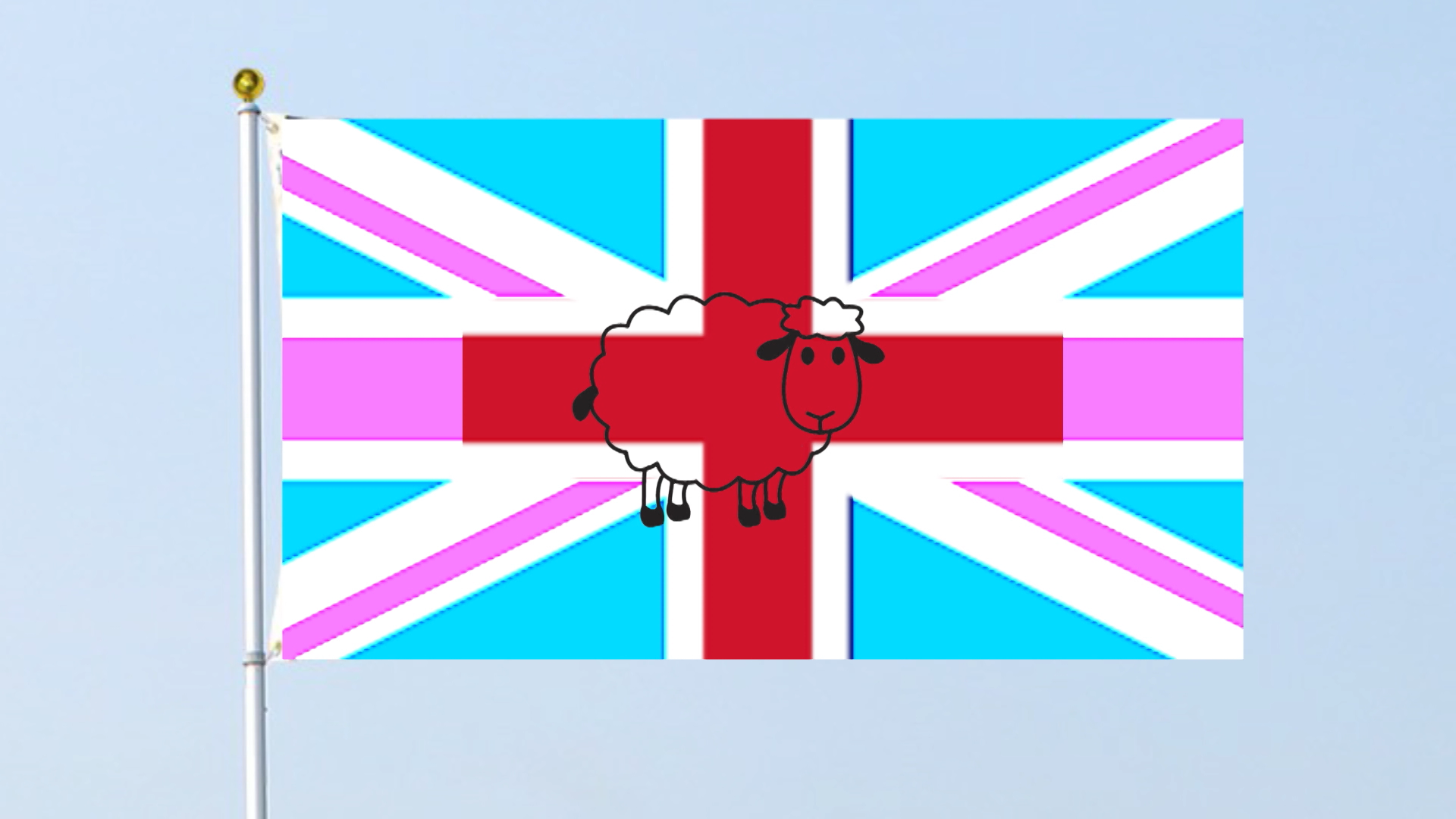
You can find an overview of ongoing debates with our journalists here . Please join us!
If you want to start a conversation about a topic raised in this article or want to report factual errors, email us at english@swissinfo.ch.